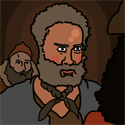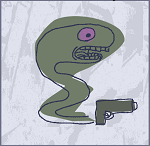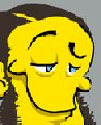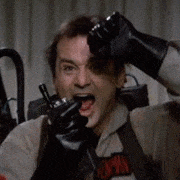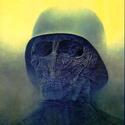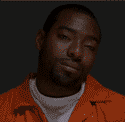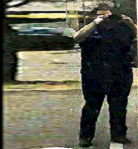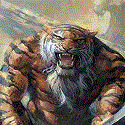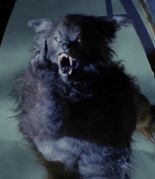|
Into the Dark, Mutiny, and The Little Ships by J A Sutherland. I rather enjoyed there. They are "science" fiction age of sail books following the career of Alexis Carew from when she joins the space Royal Navy onward. The science is bullshit and the in universe science is said to be unexplained but the effects are such that Age of Sail with lasers make enough sense that you can just let it go. The reason to let it go is that the author uses the Age of Sail setting that isn't the Age of Sail to file the serial numbers off historical events from other eras as inspiration for the stories. You can't really scoff about wish fulfillment so much when Dunkirk actually happened, and you read a story inspired by it. What I really liked about the books is that Alexis is a hero. Not in the wish fulfillment Mary Sue mold, but a hero in the sense that when she finds herself in trying circumstances she steps up and does what "anyone would have done". If she can do something, you can point to where she learned how to do it and why she did so, and she merely knows her business instead of being a superhuman chosen one. It wasn't smug high literature, but the mix of historical inspiration and a likable and sufficiently plausible hero left me waiting for more without feeling guilty. Thankfully the author appears to write drat fast.
|
|
|
|

|
| # ? Jun 1, 2024 05:34 |
|
Wolf in White Van by John Darnielle. Very impressive! Beautifully written, haunting and sad and connective. I feel like it's a book I'll revisit before too long.
|
|
|
|
Washout posted:I'm not sure that would be a factor with highly trained astronauts, it's almost like they are a different species of human. The testing they go through to prove they have "The Right Stuff" is pretty extreme. I should really go read a book specifically about it, it's a highly interesting topic. Any suggestions for books on this topic?
|
|
|
|
The Great Zoo Of China, by MATTHEW REILLY!!!!!! Reilly is a thirteen-year-old boy encased in the body of a middle-aged man. He writes with the clumsy excitement and breathless enthusiasm of a child who just learned about a new type of plane or gun or crocodile and is aching to tell everyone about it. I'm pretty sure he also aims his books at that age bracket - he has a tendency to explain big words or obscure terms like "herpetologist" or "FUBAR". I first started reading his books when I was an impressionable, excited preteen, and I'm happy to say that this latest adventure put me right back in that headspace. I can't count the number of times I guffawed out loud at a new preposterous escalation, or an agonisingly cheesy action beat. But most of all, it was fun - fun I've not had reading a Reilly book in some time. The premise is an instant winner for me - it's Jurassic Park, but in China, and instead of dinosaurs, it's dragons. Perfect. I'm sold, and so is eleven-year-old me. There are problems, of course - most of the characters boil down to a handful of archetypes, like "grizzled older CIA guy" or "sassy 'supergay' dude" or a whole cast of "sneaky Chinese". The prose itself is slapdash and uncomplicated, almost written more like a film script than a novel - lots of quick cuts and one-line paragraphs. And you can see plot twists coming a mile off. But the main character CJ is likeable, a cross between Lara Croft and Steve Irwin, and her relationship with her brother Hamish is authentic enough. This is scarcely high literature, but it's worlds better than his previous book (the abysmal historical novel The Tournament), and exactly the kind of action-packed junkfood read I've not had in a while.
|
|
|
|
The Year of Lear: Shakespeare in 1606 by James Shapiro, is a really interesting, engagingly written, incredibly well-researched book dedicated to various political and social externalities in Shakespeare's life during the year he wrote King Lear, MacBeth, and Antony and Cleopatra. It's all around fantastic and I basically finished it and immediately bought and began another of his "year in the life of Shakespeare" books, but oh my god is it marred by his absolute unwillingness to speculate on Shakespeare's inner life, emotions, or even religious or political persuasions, or I should say his unwillingness to admit when he's doing it, which is often. On some level I get it; as someone who is a very staunch defender of Shakespeare's authorship/debunker of other authorship theories (Francis Bacon, assorted Dukes and Earls, Marlowe, etc), he comes across as keenly aware of the exact breadth of the historical record concerning The Bard but also its limitations, and there's a passage where he notes a missed meeting between Shakespeare's youngest daughter and his first biographer that's practically a lamentation. There are places where some kind of speculation are inevitable and the constant insistence that he isn't gets grating, or even when he drops that about two-thirds of the way through and just goes full tilt into "it would be irresponsible not to speculate!" mode. This is from the other book of his I'm reading, but for example, he starts detailing the kind of cultural artifacts Shakespeare would have been exposed to as a youth in Stratrford, or really the lack thereof, including the fact that Protestant reformers literally whitewashed various murals of scenes from the life of Christ off the walls of the church a year or two before Shakespeare was born, but then starts talking about how he would have totally been inspired by Whitehall Palace and all the foreign art Queen Elizabeth had there, which he'd never have seen the like, etc etc, despite the fact that Shapiro repeatedly talks about how there's an entire "lost years" period in Shakespeare's life. I get that he doesn't want to go full Asquith, and actually the entire introduction seems like an extended dig at her and others, but after a certain point, when he's laying out the political and religious map of Stratfordian participation in the gunpowder plot and recusancy more generally, I could feel my eyes rolling out of my head at the constant insistence that no! there is no way whatsoever to speculate on Shakespeare's religious feelings at all in any way that has any basis in the historical record! He is forever and eternally a mystery to us! This probably makes it sound like I hated it. I didn't, it's awesome, and I reccomend it highly, especially if you're American, because the portrait he draws of how Jacobean political concerns and the psychic aftermath of the gunpowder plot influenced the arts and what was deemed "acceptable" in the theatre feels extremely timely and relevant.
|
|
|
|
Three Body Problem by Liu Cixin. (audiobook) I greatly enjoyed this book, I have little math or science background and I found myself reading the Wikipedia page on the concept of three body problem to better understand the concept. The mystery of the world's leading scientists mysteriously killing themselves had an satisfying explanation. I liked the idea of the ETO recruiting sympathizers through the use of the online game, and I thought the concept of a hopeless alien race that had been destroyed over and over again was a fine villain motivation for the Trisolarans intending to conquer Earth. The Sophons worked great to as a clever way to explain why Earth technology wouldn't advance sufficiently in the interim to stop the invasion. The build up to Ye Wenjie betraying humanity because of hopelessness worked well. I did have some criticisms, it seemed like the author really wanted to include some over the top action scenes that didn't mesh well with the hard sci-fi plot. The hidden portable nuke in the ETO meeting was silly, and the nano-fibers cutting up the super-tanker was a little over the top. Also the dialogue could be clunky and it seemed like Wang Miao forgot he had a wife and kid as the story progressed. But overall a fantastic book, I'd never gone through a book translated from Chinese before and I thought it was an excellent thriller. The Dark Forest by Liu Cixin. (audiobook) Sequel to Three Body Problem. I was disappointed, it felt like the first book was better edited and less self-indulgent. The author is at his best when using a complicated mathematical or physics idea as a plot device in an inventive way, but is terrible at writing dialogue and his action scenes are clunky and predictable. This wasn't much of an issue in Three Body Problem as the central mystery and sci-fi concepts make it compelling, but in this sequel it just didn't come together. The biggest weakness was the lack of a compelling central mystery. The Wallfacer concept was the best part of the book, and could have worked if it were shorter but it was way too self-indulgent about having a Wallbreaker show up and dramatically denounce the Wallfacer, with the Wallfacer patiently standing there until the monologue is finished. Meanwhile Luo Ji meets his dream woman, lives in a castle, gets a super-virus so he uses the hibernation technology that works perfectly everytime, becomes a cartoon as couches and robot waitresses try to kill him, and then fixes everything. The giant space massacre between the probe and the fleet was terrible. The author goes out of his way to explain how the ships are carefully lined up before the battle, and telegraphs the impending disaster so it has no energy when it arrives. The non-Western origin of the book is more of a problem than in the first story, as there is an odd tendency of the world to defer to whatever the United Nations wants to do (which doesn't mesh well with reality). China also seems to function perfectly compared to the rest of the world, which was a step down from the first book using the abuses of the Cultural Revolution as an important reason Ye Wenjie gave up hope in humanity. I don't mean that the author should be attacking China and loving the United States, but it felt like a censor was standing over his shoulder as he wrote. If the book were half as long it might be ok, but at 22 hours of listening (compared to 13 for first book) I can't recommend it. Jonathan Strange & Mr Norrell by Susanna Clarke I picked up this book on an impulse at the library without knowing much about it. I really enjoyed it, I thought the characters were well developed and the villain was interesting. It didn't feel like it was aping Harry Potter. It was odd that all of the relationships between characters were platonic, even with the married characters, so that no couple was having kids in early 1800s even with a story spanning a decade or so. Maybe it was a Victorian thing? Anyway, still a great read. Wolf in White Van by John Darnielle. Excellent story that was a quick read. One of the most interesting and believable protagonists I've read, and a great exploration of the use of fantasy as escapism. Highly recommended.
|
|
|
|
100 Million Years of Food: What Our Ancestors Ate and Why It Matters Today by Stephen Le A little disappointed with this book. Like a few non-fiction books I've read lately it reads like a TED talked padded out to a short book length. The chapters are little uneven, some providing a good level of detail and references while others go around in circles without saying much. It tries to be a travelogue where traditional ways of eating are experienced and the lessons of anthropology and science come together to provide a blueprint for healthy leaving. It's pretty shallow in all aspects. The central theme of the book is that meat and calories should be restricted when younger to delay puberty and prevent cancer and diabetes type disease that take a long time to develop. But also that meat and calories should be consumed in higher quantities later in life for physical robustness and resistance to disease. The travelogue aspect is pretty clumsily written. Chapters follow this template of 'I went to this far flung place to eat like their ancestors. Here's some dull story about trying to find the right bus to catch or hire a motorcycle and meet my friend I know from university who lives there. Turns out people here don't eat the traditional way anymore. Remainder of chapter is science/history of insects as a protein source'
|
|
|
|
Deadwood: The Golden Years by Watson Parker. As a fan of the HBO Series and frontier history in general I found this book to be very enjoyable. Parker explains in detail what made the once illegal mining camp such an interesting and memorable part of American history. Although he does include individuals such as Al Swerengen or early lawmen like Seth Bullock, Parker aims to tell a story about the inner workings and spirit of the town itself. Figures from the show like Wild Bill Hickok are only mentioned in a few paragraphs and are just another part of a much larger story. It's very much about the entire cast of characters and going-ons of the town rather than the few individuals that most readily come to mind when thinking about Deadwood. An added bonus from the book was that I now know way more about mining than I ever thought I would and thus have a greater appreciation for the endeavor, as well as the brutal ways miners could be killed while doing this back breaking work.
|
|
|
|
Empire Of The Senseless, by Kathy Acker. This book was difficult, for a number of reasons. It's a "post-punk" feminist postmodern novel, detached from regular structures and tropes, and genre-wise it's very hard to pin down. The dreamlike stream-of-consciousness prose and the blends of inner and outer monologue didn't take me long to get used to. It's packed full of sex, violence, racism, and sexual violence, vivid and ugly. It's also peppered with really sweet or beautiful moments, or thoughts. The book is nakedly political, set in a then-present "1988 but even worse", mid-apocalyptic, and she doesn't shy away from depicting the violence of patriarchy and class warfare under Reagan's boot. Paris and London are destroyed, New York is a warzone, the main characters are terrorists/pirates/bikers, or at least want to be. One of them is half-woman, half-robot. As I said, it's not an easy book, and I'm still digesting a lot of it, but it's one I'm very glad I've read.
|
|
|
|
The Fold, by Peter Clines. In short, the plot of this book is vastly more interesting than the characters. It's a sci-fi book in the vein of Half-Life as a sci-fi game: set during the present day, but the protagonist is sent by DARPA to a top-secret research installation in the desert that's made a fantastical discovery which turns out to not be what it seems. It's an interesting mystery with a pretty good and intriguing explanation, but the characters have the depth of cardboard and the book expounds at great length on how special the protagonist is ad nauseam. The other characters aren't much better, and there's little to any of them besides one-note descriptions like "pretty secretary" and "implied lesbian." I'm torn between liking and disliking what happens when poo poo goes completely bananas in the last few chapters, and the ending comes completely out of left field and implies that this is the start of a new series. I want to like this book. It has a good mystery, an interesting answer that not only raises many questions it actually answers the original question, but the characters are incredibly dull. Maybe the implied sequel will fix things.
|
|
|
|
Head Full of Ghosts by Paul Tremblay The story is mostly about a character telling an author about her childhood experience with her family becoming the stars of a reality television show about her sister being possessed by a demon.I haven't read a review of this book that was anything less than gushing adoration but I was incredibly disappointed. Its a very simple, straightforward story and the big twist is heavily foreshadowed in the first few chapters. The sections that are presented as blog posts weren't very enlightening and the snarky/manic style was painful to read. There wasn't even anything particularly scary. Plenty of tension, yes, but no real scares or mystery.
|
|
|
|
Selected Poems of W.H. Auden. It was bit of a disappointment, because I was unfamiliar with Auden and bought the collection the strength of Shield of Achilles alone. I imagined that his oeuvre was more like it. Stylistically, yes, but he's more comic and irreverent than I thought.
|
|
|
|
SilkyP posted:Any suggestions for books on this topic? Offhand all I can think of is autobiographies. What I originally read were some between chapter ramblings of a sci-fi author who was involved in the astronaut training projects in the 60's, and they had so many qualified applicants they had to literally design torture tests to weed people out. Might have been a special edition of footfall? It had something to do with orion spacecraft but that's all I can remember.
|
|
|
|
HereComesEverybody posted:How so? I'm guessing that you need to have a good memory of the things that went on in Shadow of the Torturer because Severian will not do a good job remembering them for you. SilkyP posted:Thought I was the only one who read and liked this book! Wish I could tell you how any of the subsequent book are but I stopped after there. I didn't. I ended up reading Lines of Departure by Marko Kloos sooner than I implied I would. It's basically more of the same, with the focus shifting from the ins and outs of military life in the future to how much more hosed humanity is in the wake of first contact with giant aliens who are virtually invincible and invading our colonies, and how much poo poo the grunts in the military can take from their commanders. I also read The Library at Mount Char by Scott Hawkins. I'm not sure how to classify this book; it's cosmic horror and urban fantasy, but doesn't really resemble the usual fare from either subgenre. The "magic," for lack of a better word, is really intriguing, and it isn't shown more than it needs to be, so it isn't made mundane by overexposure. At first I thought that the book suffered from the inclusion of characters from the mundane, real world, outside the conclave of adopted siblings privy to the true laws of reality, but the ending nailed the emotional core of the book and needed those elements to work, so I completely changed my mind. I do wonder, however, if I'd be okay with Father and Carolyn almost letting the world end if Rick and Morty hadn't already made me okay with that sort of plot point.
|
|
|
|
Mother Night - Kurt Vonnegut Re-read it after it was brought up in these forums. Heartbreaking and devastating and basically perfect. Styx - Davo Bhooge A detective story with a twist! A tired, cynical inspector who's tracking a serial killer is murdered by his suspect, and comes back as a zombie to finish the case. It wasn't very good. To me, murder mysteries are tightest when it comes to genre structure and procedural rules to follow. They are specifically written to allow the reader to figure out the killer's who, hows, and whys through constant set up and payoffs - the emotional moment of "I knew it!" or "Ah-ha! Of course!" in the reader is part of the point of the story. There is still room for red herrings, social commentary, or playing with the genre/format of the story, but each piece of the puzzle has to have its own function and part. This didn't have any of that. Suspects are introduced, and then dropped the very next chapter. There's a stupid time-travel element in the book that doesn't really have any point. The rules of the "zombification" are nebulous at best. It coasted on it's main premise and it's interesting setting, but that's about it. Disappointing.
|
|
|
|
|
Finished all 3 Cormaron Strike novels from Robert Galbraith (Well ok JK Rowling). The third is the weakest one but I liked them a lot. I think they're all a bit too long though. Rowling has this habit of repeating things from the previous book for new readers and while I get that, there has to be a better way of doing it. It probably doesn't help that I've just come off reading a bunch of Lawrence Block books and they're a lot more stripped down in comparison.
|
|
|
|
Terrible Old Games You've Probably Never Heard Of, by Stuart Ashen. Another book I helped crowdfund, by a YouTube guy who mostly reviews bootleg toys and weird electronics. This is a collection of short pieces about weird, obscure and bad olf home computer games. The book itself is really slickly produced, and has the aesthetics of an old games mag, right down to the busy background colours and snarky tone. It's an easy read, with some cool guest writers (like Violet Berlin!), and I chuckled a fair bit as much as I was consumed with "before my time" nostalgia. The layout does work against it sometimes, and I think I've become so conditioned to videos about games that I was distracted by the fact that all the book is is words and screenshots. But at the same time it's nice to enjoy this kind of thing with my own rhythm.
|
|
|
|
The Bogleheads' Guide to Investing: If you're new to investing and think it's scary or too complicated, this is the book for you. If you've been investing for years and think you know everything, this could also be the book for you.
|
|
|
|
Finished Oryx and Crake by Margaret Atwood. I thought it was really good, but not quite great. I might get around to reading the rest of the trilogy some day, but I'll probably put it off for a while.
|
|
|
|
I've just gotten through the Histories, by Tacitus. I've recently gotten quite into the works by Roman authors and between it and the Twelve Caesars I've not had to look for a fiction book in a long time. It's positively a Game of Romes.  They're missing the later half of the book thanks to things going walkabouts in the last 1900 years, but what's left is a fascinating and engaging account. It's definitely biased and certainly not quite got all of the detail, but what gets me is that it's a near enough contemporary account of things. Strongly recommended to anyone who's got an interest in the Roman Empire.
|
|
|
|
Just finished Mr. Paradise by Elmore Leonard. I've only read one other by him (I can't think of the title for the life of me, but it was about a diver), but this one was much better... I might check out more stuff someday.
|
|
|
|
Long post incoming, sorry bibliogoons !! Historically, my annual reading goals were based on how many books I read -- ranging from 50 to 80, depending on the demands of grad school. This year, though, my goal was to log time reading -- 500 hours -- to give myself the chance to read longer/more involved works. I basically didn't read at all in 2016 until February 24 (I moved and was on a job hunt!), but in the past month I've spent a lot of time with book-in-hand -- just under 50 hours. So, I've read: Command and Control by Eric Schlosser, a behemoth about the Damascus Incident, nuclear proliferation, and the countless nuclear catastrophe near-misses during the Cold War. It's exhaustively researched, harrowing, engaging, and endlessly fascinating. I'm so glad I read it and highly recommend it to anyone interested in the history of nuclear policy or the Cold War. The Ghost Map by S. Johnson, about the cholera epidemic(s) in London. Interesting and engaging for the first 2/3, it petered off when Johnson started using the public health of 19th century London as a springboard to examine current public health trends and policies -- it just didn't work well and thoroughly disrupted the book as a whole. He should've just stuck with a straight history. The most interesting parts dealt with Victorian London's working classes (including the occupations of the lower classes) and the history of medicine and John Snow, the man who tracked and effectively stopped the cholera outbreak originating from the Broad Street pump. The Age of Radiance by Craig Nelson. Another book about the history of nuclear science, Nelson starts with the Curies, and moves forward to the Manhattan Project, WW2, Cold War, and Chernobyl/3 Mile Island/Fukushima.Conversational, interesting, and well-paced. A lot of quotes and reliance on primary sources, with succinct descriptions/explanations of different theories and ideas. Nelson also discusses the personalities and philosophies guiding a lot of the scientists, particularly Fermi, Teller, and Oppenheimer. He does an admirable job exploring a socially, scientifically, and politically complex subject.
|
|
|
|
I'm a big fan Lois Bujold's Vorkosigan saga - she's one of the rare breed of sci-fi writers who can write dialog / banter that's both funny and coherent, have psychologically nuanced and believable characters, and have intertextual connections to something other than previous sci-fi novels / the goddamned loving Hero's Journey. I felt that the Vorkosigan series started to really loose steam after Civil Campaign, and her other series were never quite of the same standard, but I was still looking forward to Gentleman Jole and the Red Queen. A lot of Bujold's stories deal with romance between two adult / mature people. Its actually a strength, for the most part. The difference is that in every other one of her books the romance was not the whole plot of the book and there were generally some obstacles in the way of the romance. Gentleman Jole is literally a love story between two senior citizens who are very open about their feelings, have known each other for years, and have nothing preventing them from consummating their love. Which they do in due time. It's just an absolute nothing of a story - it doesn't even manage to be a frilly romantic comedy. Shame.
|
|
|
|
Just finished Harry Potter and the Order of the Phoenix. Loved it, but not as good as Goblet of Fire. Going to take a break before reading the last two because I've been burning through this series and want to slow down a bit.
|
|
|
|
The Kingkiller Chronicle: The Wise Man's Fear, some tale of epic fantasy or whatever. I'm getting more emotional over the next one I'm reading, A Dream Fulfilled: The Story of Barack Obama. My ELL students are reading it, too.
|
|
|
|
Haymaker_Betty posted:The Kingkiller Chronicle: The Wise Man's Fear, some tale of epic fantasy or whatever. I'm getting more emotional over the next one I'm reading, A Dream Fulfilled: The Story of Barack Obama. My ELL students are reading it, too. Nice, two epic fantasy books.
|
|
|
|
tonytheshoes posted:Finished Oryx and Crake by Margaret Atwood. I thought it was really good, but not quite great. I might get around to reading the rest of the trilogy some day, but I'll probably put it off for a while. Oh hey what a coincidence! I also just read Oryx and Crake. After-the-end near-future SF, told from the point of view of Snowman, possibly the last living normal human. He does his best to coexist with a strange new breed of humanity in a world ravaged by climate change and genetic modification run rampant. Half of the book is told in flashback, with his memories of growing up and meeting the titular Oryx and Crake, the latter of whom might be responsible for the way the world now is. I'm generally not too fond of apocalyptic writing, and this did little to change my tastes, though the dispassionate way Atwood portrays societal collapse - in glimpses, in subtle changes in the way people live - was effectively unsettling. I'm curious to read the other two books in the trilogy, mostly because I'm not sure where things might go from here.
|
|
|
|
The Family Trade by Charles Stross. It was somewhat entertaining but I will not be continuing on to later books in the series.
|
|
|
|
Blasphème. Brève histoire d'un 'crime imaginaire', by Jacques de Saint Victor.A french law history book on blasphemy laws and conflicts betwwen free-speach and religion starting from Middle-Age. A short, easy reading, and as always with Jacques de Saint Victor heavily documented. And more than anything, a book full of lessons for the present . The same goes for his history on European mafias.
|
|
|
|
Spring Snow - Yukio Mishima Set in the early 20th century against the backdrop of the declining Japanese aristocracy, Spring Snow is a "love" story about a really hot young boy, whose body is described in sensuous detail by the straight author, and a journal of his pathetic, childish attempts to one up his manipulative lover. The real love story is between a minor character and a shade that is heard from once via a letter delivered posthumously. I am an extremely tractable person, so I came out of this read craving a poetic death at a young age. I found myself relating to Kiyoaki's emotional instability but Honda was always my favorite character and I got excited every time he would begin one of his monologues on the nature of something really boring. I can't wait for book 3 because I've heard it's basically a giant Honda monologue. The scene towards the end, at the convent, with Honda and the Abbess, is probably one of the best things I've ever read. Very poignant. 5/5
|
|
|
|
Titus Alone by Mervyn Peake. I'm going to be writing a more in-depth evaluation on this book later, but for now I can say that I gave this book a shot and it still fell short of Titus Groan and Gormenghast. It's a fascinating, noble failure in concept that dragged in execution during the latter half even though it's a much shorter book. Peake tried to make this book as different from his first two as he could, and almost all of those changes turned out to have been for the worst. It's the Final Fantasy VIII of classic lit. I give it a 6/10, compared to the prior books' 8 and 9, respectively.
|
|
|
|
Solitair posted:Titus Alone by Mervyn Peake. When you do, take into account that by the time he wrote Titus Alone Peake was in the early stages of Lewy dementia and would be completely debilitated within a couple of years.
|
|
|
|
Guns, Germs, and Steel. Late to this party. would have liked it if I'd read it when I was younger / before years of grad school and interdisciplinary study. Managed to not be profoundly racist in its assertions, which genuinely shocked me. It's been fun reading all the criticisms of the book, though!
|
|
|
|
Jedit posted:When you do, take into account that by the time he wrote Titus Alone Peake was in the early stages of Lewy dementia and would be completely debilitated within a couple of years. I did, but I don't know how much that affected the book. It probably forced him to make the book much shorter that it should have been and kept him from fleshing out most of the new setting, but there are also some structural choices I don't like that I can't see being the result of a mental illness. Also, I knew he had Parkinson's disease, but not dementia too. I'll have to edit that in.
|
|
|
|
Bitchkrieg posted:Guns, Germs, and Steel. Late to this party. would have liked it if I'd read it when I was younger / before years of grad school and interdisciplinary study. Managed to not be profoundly racist in its assertions, which genuinely shocked me. I am about to re-read that. I thought it interesting when it came out. I just finished 1491 by Charles Mann. A history of the Americas before Columbus. The author postulates much larger socities with more complex histories in the "New World " than that previously taught in most classrooms. Interesting and thought provoking.
|
|
|
|
Prisons We Choose To Live Inside by Doris Lessing Five short essays about insights into modern (1987) America. The author writes that the only way mankind can move forward, we must, as individuals, study history, culture, and social sciences so we may question the world around us, be aware, and be more adept at the changes we face in our country. Optimistic and interesting. I wish I could have given this book to myself in high school.
|
|
|
|
Bitchkrieg posted:Guns, Germs, and Steel. Late to this party. would have liked it if I'd read it when I was younger / before years of grad school and interdisciplinary study. Managed to not be profoundly racist in its assertions, which genuinely shocked me. I think Jared Diamond gets an undeservedly bad rap. He gets accused of being an environmental determinist by people who can't actually disagree with the concept but just find it abhorrent. Thats something i really hate about cultural anthropology. There is this whole faction who take issue with the idea that environment puts severe restrictions on what shape societies take. Its like, come on guys, you can wring your hands and wail about cultural adaptation and human ingenuity all you want but if someone's living in the Arctic Circle in 1600 they're probably not going to have a super sophisticated agricultural tradition. Some of the discussions about Collapse get me spitting mad because of how pedantic people get about the word "collapse". They say that there is no such thing as a society collapsing, they just change into a new form. Which completely ignores the fact that in the instances Diamond pointed out there was a very clear end to the structures and institutions that made the societies a distinct group (Romans vs. People who live on the Italian Peninsula) .
|
|
|
|
I agree with you but please don't start this shitstorm again.
|
|
|
|
Say Jared Diamond three times and all kinds of retards will appear. Then you have 100 pages of people arguing 'North Korea and South Korea' disproves any geographic contribution to technological progress with 'IQ decreases with proximity to the equator' types.
|
|
|
|

|
| # ? Jun 1, 2024 05:34 |
|
The_Angry_Turtle posted:I think Jared Diamond gets an undeservedly bad rap. He gets accused of being an environmental determinist by people who can't actually disagree with the concept but just find it abhorrent. Thats something i really hate about cultural anthropology. There is this whole faction who take issue with the idea that environment puts severe restrictions on what shape societies take. Its like, come on guys, you can wring your hands and wail about cultural adaptation and human ingenuity all you want but if someone's living in the Arctic Circle in 1600 they're probably not going to have a super sophisticated agricultural tradition.
|
|
|






